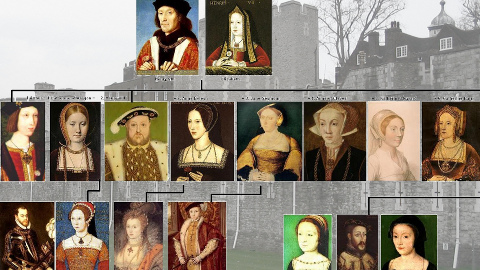One of the most common questions I get, and quite likely the most irrelevant, is “how shall the artists get paid?” in a scenario where the copyright monopoly is scaled back to sensible levels. But it makes no sense to ask that of a politician, for two primary and two secondary reasons.
1. This is not a problem for politicians.
In most of the world, we have a market economy. That means it is up to each and every one of us to find a paying job; politicians will not and can not dictate how a particular person is going to make a living.
In Soviet Russia, you had a planned economy. There, you could legitimately ask this question.
Vladimir Biletnikov! You say you want to be a tenor. You have a terrible voice, but you look strong. You shall work as a builder all your life and be paid by the Construction Bureau. Fjodor Dostoyevskij! Your health is appalling, but your writing is appreciated in cultural circles, although most people don’t see why. You shall work as a writer all your life and be paid by the General Directorate of Incomprehensible Arts.
It is notable that not you were not given the choice to be paid for the particular job you wanted even in a planned economy. But in a market economy, everybody need to find their own way to contribute to the economy and make a living off of it.
You can’t ask a politician where the next paycheck is going to come from.
2. It is not a problem in the first place.
Even if it would be on the politicians’ desk, it turns out it is not a problem at all. The average income for artists as a collective has risen 114% since the advent of file sharing. The amount of artists getting income from their artistry has risen by 28%, and the average income per artist has risen by 66%, according to a Norwegian study. United Kingdom numbers show the same thing. (This is for music, the industry complaining the most.)
The part of the industry that is losing out is the parasitic middleman structure which isn’t needed any more; the copyright industry. They — like record labels — are also the ones pushing for the eradication of the Internet as we know it.
But record labels are not needed for artists to produce, exhibit and sell culture. Which is probably what scares the record labels the most: their suppliers don’t need their brokerage any more, which is why they are attacking the distribution channels that allow artists to bypass them.
3. Entrepreneurs will be entrepreneurs.
Yes, the Pirate Party wholly supports people’s right to make a living. But nobody has the right to call their favorite pastime “work” and demand to be paid for it.
The instant somebody goes from playing their guitar in the bedroom and at parties to wanting to make money off of it, they are no longer an artist, but an entrepreneur and a business owner. The same rules apply to them as to every other entrepreneur on the planet: They need to provide something which somebody else is prepared to pay for.
If they can do that, they need no law to sustain their business. If they can’t do that, no conceivable law can save their business.
4. My fundamental rights go before your profits.
As we have seen, the question “how shall artists get paid?” is not a problem in the real world. Artists make more money than ever, there is more culture than ever, and it is not a politician’s problem. But even if all of this were not so, even if artists were indeed suffering (which they aren’t, but parasitic middlemen are), copyright would still need to be scaled back. It is now infringing on fundamental rights, and as a European citizen, I’m not prepared to give up those citizens’ rights for a multinational corporation to boost their profit.
In the 21st century, the Internet IS speech, IS assembly, IS association and IS the press.
If a corporation can’t sustain a business without having these rights limited, then that corporation deserves to go out of business. The sooner the better.
5. History repeats itself and we are cultural animals.
There will never be a shortage of culture. We have created since the day we learned to put red paint on the inside of cave walls. There is more culture available than ever, much thanks to the Internet.
There are millions more people who want to live off creating culture than the demand will bear. Most create for different motivations than money. You will have no hard time finding a professional broker or accountant who picks up their guitar as they come home from work to relax a bit, but show me a professional rock guitarist who picks out the financial ledgers for some relaxation in their spare time? In financial terms, there is an oversupply of creators. Always has been.
When the printing press and libraries arrived, the middlemen proclaimed the death of culture. History repeats itself. Let’s get rid of the middlemen, limit their monopolies, and let the artists and culture flourish.
This post has been considered reference material by the swarm, which has started to translate it into other languages. Translations so far: Arabic.








[…] This post was mentioned on Twitter by Falkvinge, Daniel Basteiro, lillebrorsan, Oskar Levin, Emil Isberg and others. Emil Isberg said: RT @Falkvinge: on #infopolicy: How shall the artists get paid? http://goo.gl/fb/JejXZ […]
“State Subsidization and Grants” was the fraction that grew the most. Not a problem for politicians?
1) No, the one that grew the most was “Live”.
2) “Grants” does not specify source, governmental or private.
3) Even absent that part, income would still have risen 75%.
I’m not opposed to cultural grants, which in that case is handed out by boards and prizes etc., but nobody has the right to demand to be fed by the taxpayers. At least not over and above basic sustenance (social welfare) — but that has nothing to do with copyright or culture.
1. Almost all markets are regulated…
2. The Norwegian study is not representative for the world. And its ironic that copyright which you don¨t approve of is responsibly for a lot of payments to musicians both those who write and work in the studio and those performing live.
3. Why should those with a piratecopy pastime be allowed to “steal” music?
4. All corporations depend on laws and regulations to stay in business, elementary for most people but obviously not for Rick…
5. Just because there is plenty of amatuer musicians doesn´t mean that it’s OK to “steal” the works of professional musicians…
first of all Rick, never mentioned laws and regulations for corporations he mentioned the fact that if you work in the entertainment industry you have to have people wanting and willing to pay for what you have produced. what he meant is that politics can not dictate or change how the entertainment industry gets paid. the market dose that if they produce something that people enjoy people will buy because they like it. and the we come the the fact that 15-30€ for a record is a rip of when production values are so abysmally low now a days and internet is as close to free distributional platform you can come today.
I have personal produced hundreds of flash/Java based games and short flash films I have gotten paid for some of them, not even close to what I wanted to be paid, and that’s why I have a full time job with web-design and with visual-arts, but if I would have gone to a politician and said “hey! I want money for what I have created” they would most certainly said “GET A REAL JOB!” and that’s why I have one.
anon, first of all very few records costs 30 euro and the production values vary dramatically from production to production. A downloadable “record” often costs under 10 euro which is not very expensive compared to other downloadable products.
As for peoples willingness to pay for what they want, well its much easier to get paid for ones work if they are not freely available from lllegal sites on the net.
Of course among politicians tasks they have to work for the musicians and producer entrepreneurs rights so that they aren´t being ripped off by the pirates, who in no doubt are doing illegal activities by distributing material which they have no right to distribute….
You can call it “steal” as much as you want it, but is not stealing. If you copy someting it only multiplies.
Visp, you’re trolling. Stop provoking and contribute to the discussion. You know that copyright infringement isn’t stealing; it’s infringement of a monopoly.
If you claim that the NO study is not representative, I expect you to back that up with data as a UK study says exactly the same thing.
No Rick I am not trolling you are! But don’t you find it ironic that in large part what pays the artists is copyright? which you and your party want to radically cut down.
Visp:
I find amazing how you talk for the musicians without a clue.
I am a “professional” Musicians, I studied music more than18 years and I see no musician having profit from records… well except a few 3 or 4 that doesn’t even need promotion. Do you think it is fair to make a cd and for each sale of a cd being paid 1 euro or 2? when it cost 10 +???? Are you really defending that? are you crazy?
Before talking on the defense of musicians, think twice, or make yourself a fool like you made in here.
The copyrights were made to defend the creators, and once again, as with the patentes, it is perverted and the copyrights are assets for big corporations that produce almost nothing. Do you want to defend them????
Luckily you are free to do so, but do it with facts, and read a study before posting about it, or else you will be called troll all the time
Visp:
You say artists are paid by copyright, yet Rick’s graphs show that a significantly growing part of their income comes from live performances which in no way rely on copyright. A large, if diminishing, slice of the pie goes to the middlemen and grants and other payments are growing: the majority of copyright benefits go, not to the the artist, but to the middlemen, hence their howls of pain at perceived copyright violation.
What benefit does and artist get from copyright which extends to 70 years after his death? Such an egregious monopoly, if truly enforced, can only result in the vast majority of works being definitively lost. When a work finally exits copyright it is unlikely that anyone will even know of its existence let alone be able to source a copy.
To say that Rick wants to “radically cut down” copyright is disingenuous. I don’t know his exact position but just a rollback to the state of affairs say 50 years ago would satisfy many of us. It the the copyright maximalists who are guilty of having radically change copyright to serve their self interests.
Visp: If you paid attention to the numbers presented here over time, you would have observed that less than 1% of artists’ income is copyright royalties.
(U Pettersson, “Upphovsrätten som incitament”, 2006.)
Please stick to facts and reports. If you present data, back it up.
Rick you really are lost and clueless if you believe that only less than 1% of artists income are from copyright…….
Ok, enough trolling from you. I gave you a reference, and specifically asked you to provide sources rather than just being aggressive.
I have a rule on my server: when you are a guest here, I expect you to behave like a guest in my house. I show hospitality and provide friendly and intellectually stimulating discussion, but I also require that you show respect to me and my other guests in return.
Good bye.
This is a very good and clean write-up, thanks Rick.
The only thing I’d like to add here;
The record industry has already lost the battle, because they have not provided what their customers wished for quickly enough.
What their customers wanted was an easy service for downloading music and movies with no hassle. The Pirate Bay give them exactly what they want. The record industries do not. Their customers would gladly pay for a service better than TPB. Instead, what they get are half-baked attempts at digital stores where they get spit in the eye every so often.
But that’s ok, since there will rise a new music scene from the old one. If the record companies won’t share their music, young people will turn elsewhere, maybe to open stores such as Jamendo, maybe some other place like the pirate bay. Places where the music is truly free. Either the record companies start playing nice, or they will be forgotten by the mists of time in two generations. The question is not if, but when the culture will be set free.
In section 3, the following phrase sounds a bit wrong: “they are no longer an artist, but an entrepreneur and a business owner”. I would have put it: “they are no longer JUST an artist, but ALSO an entrepreneur and a business owner”, if you see my point.
I was also hoping that you in a text like this would put more emphasis on correcting the major misassumption that most people have: that copyright exists so that artists can make money.
I remember it as a major epiphany a few years ago when you explained in a Swedish text how the ability to make money off of copyright is not a purpose in itself, but a means to an end – more culture in society.
I look forward to seeing you push through this important piece of consciousness-raising in English too.
The Pirate Party seriously misunderstands business in point 3 though. Yes if you have a valuable product people will buy it, but in the music industry it’s as if you have a new kind of gourmet dish, which took you a culinary degree to learn (and money and time associated therewith), and then someone runs into your restaurant with a matter-duplicator and gives out the dish for free…you have a right to be angry, perhaps even if you get paid as much as you would have if they hadn’t used their duplicator.
But the point about musicians making more money and the industry less is good one, and seriously hampers the hipster or artist worshipping argument against illegal downloads. It still, however, does not do away with the business man’s argument. Who might say the record companies deserve profit too, since they help produce and distribute the record.
Your example with culinary masterpieces is quite interesting, as recipes are explicitly not copyrightable. Yet, there are multitudes of professional cooks, despite the fact that their work can’t be copyrighted.
As for “deserving profit”, there is no such thing. Either you have a sustainable business model, in which case you will make a profit, or you have a non-sustainable business, in which case you will go out of business. There is no such thing as a corporation which should be guaranteed to make a profit in any working economy.
It’s true recipies can’t be copyrighted, however it’s also true that you can’t really duplicate the products of recipies.
Maybe it’s my fault that I don’t understand it, but what incentive would I have to work hard and produce something that somebody else will just be able to infinitely duplicate and make a profit of? Wouldn’t I just choose to do something else instead? Wouldn’t this harm the very goal of spreading culture?
I guess this has been already talked about, if so please be kind enough to point me to the relevant FAQ or discussion about this topic.
On the same topic, what’s your stake on GPL? Have you ever openly discussed the matter with Richard Stallman? He believes copyright needs to be exploited in order to make culture free (as in libre), you think (correct me if I’m wrong) that copyright needs to be totally abolished in order to reach the same goal. They seem to me two irreconcilable positions.
Matress duplicators dont exist. The internet is a reality. Show me a matress duplicator and ill show you my megamind antimatter gun. Even if a cacktus duplicator existed… You should cut down prices since its so easy to duplicate your dish. Or I will cut it for you duplicating it and giving it away for free, but charging a small fee for my duplication work with the cacktress gun.
Rick, I agree with you. I come from Russia, where copyright laws thankfully don’t work yet, perhaps only for organizations. What can I say? Starved musicians are not lying on the streets, movies continue to be made, books are written in crazy quantities. Reality itself proves the Copyright Argument to be no more than a theoretical opinion.
I have a lot of professional musicians friends. None of them – I repeat, none – make a living thanks to royalties. They either get a one-time pay (a very frequent case, actually, especially if you write music for media, like ads or games or movies) or do gigs, depending on the type of musicians they are.
I personally consider myself a serious composer but I do not wish to make money with my composing – intentionally. All that talk about wanting to go professional is quite often a myth. Those people who really want to go professional and actually do something about it have all the chances. Those that just talk about it don’t know what is involved anyway.
Having said that, I don’t believe an artist has any significant moral right to dictate how his work is going to be used. An act of creativity is a sacrament the result of which is much closer to a gift, than many would want to admit. And if one labels his music/movie/book as an economic product and not as a result of inspiration, then such a person should not call himself and artist or creator but rather a businessman and a production unit.
Imagine someone releasing a song and saying – a Metallica economic group has released a new product entitled “Beautiful Song”. Costs 20$.
This is what is should be. And we will treat it as a product. And think whether we want music or products.
[…] no protegemos la propiedad intelectual nos quedaremos sin propiedad intelectual”, “hay que pagar a los artistas“, etc.) y los insultos reiterados a la otra parte (“piratas“, “traficantes […]
Sweet web site , super design and style , real clean and use friendly .
[…] Working at it “In fact, to the extend that the future is shaped by human action, it is not much use in trying to predict it – it is much more useful to understand and work with the people who are engaged in the decisions and actions that bring it into existence” – Saras D. Sarasvathy “The instant somebody goes from playing their guitar in the bedroom and at parties to wanting … […]
[…] from Norway, I’ve been digging through pirate-y things to bring up here. I dug this up from Falkvinge.net . It’s a little old, but since the copyright situation now is about what it was in January, it […]
[…] How shall the artists get paid? by Rick Falkvinge […]
[…] pirate king, is right. Harsh though it sounds, getting artists paid is not a politician’s job. It’s the artists’ job. So in a world without copyright monopoly, how will we make […]
[…] pirate king, is right that getting artists paid is not a politician’s job. It’s the artists’ job. So in a world without copyright monopoly, how will we make […]
I do consider all of the ideas you have introduced on your post. They’re really convincing and can definitely work. Still, the posts are too short for newbies. May just you please prolong them a little from subsequent time? Thank you for the post.
[…] common question is how the artists shall get paid. That, too, is a red herring. First of all, it is not a policy problem, and second, it is not a problem at […]
the gov’ should not care how anyone makes a living. but it should enforce contracts that are made between two willing actors. If one offers a product and terms of use, the other party should honor the terms. If he does not wish to honor the terms, he should not enter into the agreement.
Indeed. But the copyright monopoly concerns third parties that are not part of any original agreement.
11X2asd. What are better for gaming- laptops or desktops? 11asd23x163
Hi, I have a blog in portuguese and I’d like to translate this article and submit it to you after that, so it’s listed on the website. How can I do that?
Hi, I translated this article to portuguese.
Here: http://observatoriopirata.tumblr.com/post/34812998891/como-os-artistas-devem-ser-pagos
[…] here’s an excellent example of how this ‘copyrights issue‘ thing […]
[…] here’s an excellent example of how this ‘copyrights issue‘ thing […]